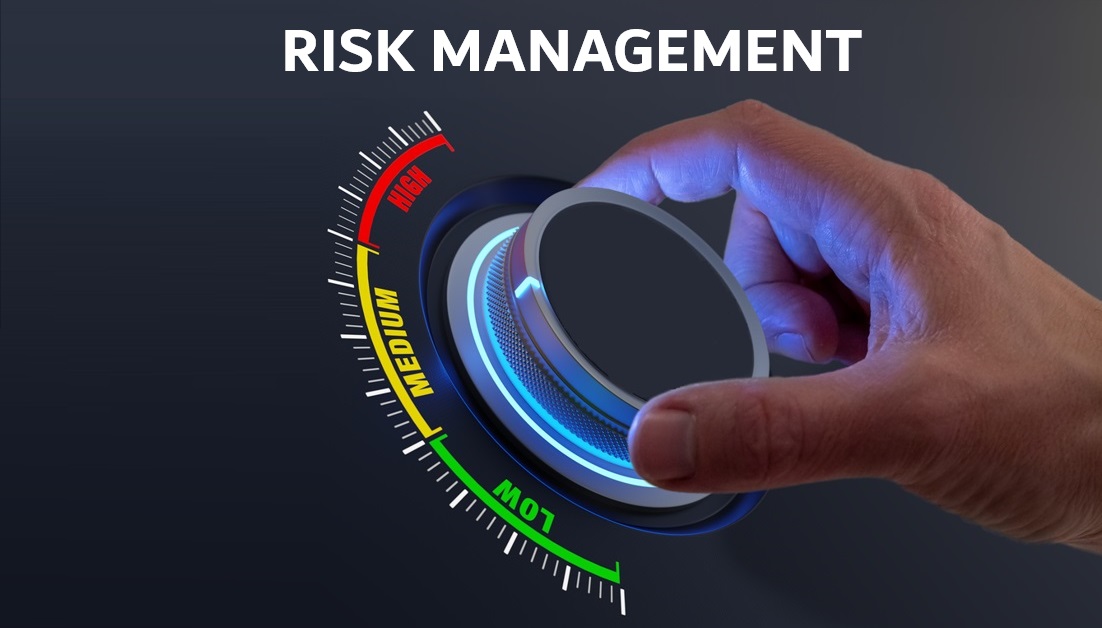A Inteligência Artificial está revolucionando cada vez mais todos os setores imagináveis, e a gestão de projetos não é exceção. De acordo com o relatório “Inovadores em IA: Desvendando o Código do Desempenho de Projetos” do PMI, 81% dos gerentes de projeto admitiram que suas organizações já foram impactadas pela IA.
O relatório também previu que os projetos gerenciados com IA aumentarão de 23% para 37% nos próximos três anos. À medida que o impacto da IA cresce, os gerentes de projeto terão que se adaptar. A IA mudará a forma como os projetos são gerenciados, como as estratégias são implementadas, as tarefas são executadas e as decisões são tomadas.
IA na gestão de projetos:
1- Análise Preditiva

A McKinsey realizou um estudo com 1.800 projetos de software e descobriu que apenas 30% dos projetos foram entregues no prazo. O pior é que 20% desses projetos conseguiram cumprir o prazo porque removeram certos recursos e funções do escopo do projeto.
O estudo da McKinsey também constatou que a variação de datas diminuiu quando os gerentes de projeto utilizaram modelos preditivos. Houve uma redução de 30% a 40% nos defeitos por linha, o que melhorou a qualidade do código.
Eles concluíram que, ao aproveitar a análise preditiva para planejamento e tomada de decisões, os gerentes de projeto podem reduzir drasticamente as falhas do projeto e aumentar as taxas de sucesso do projeto.
A análise preditiva também pode ajudar você com:
- Gestão de tempo
- Colaboração em equipe
- Melhor controle sobre as tarefas
2- Gestão de Riscos

Todo projeto tem riscos, interdependências e incertezas associadas. Como gerente de projetos, é seu dever avaliar e responder a esses riscos de forma eficiente, caso contrário, eles podem se tornar a causa do fracasso do projeto. Com a IA à sua disposição, seu trabalho se tornará muito mais fácil. O sistema de IA alertará você sobre riscos potenciais analisando dados históricos e em tempo real do projeto.
Mais importante ainda, ele aumenta a visibilidade dos seus projetos e também permite prever potenciais resultados. Por exemplo, os gerentes de projeto podem verificar se uma tarefa será concluída antes do prazo ou não, analisando quanto tempo está sendo gasto nela. O mesmo vale para projetos.
3 – Estimativas do Projeto

Há momentos em que você não tem certeza de quanto tempo um projeto levará para ser concluído ou de quanto dinheiro terá que investir nele. É nesse momento que você terá que se basear em dados históricos da empresa e estimativas de projetos, que podem ser imprevisíveis na maioria dos casos. IA e aprendizado de máquina são excelentes para analisar grandes quantidades de dados e encontrar padrões, de modo que possam fornecer insights úteis que ajudarão você na estimativa do projeto.
Ter uma ferramenta de IA para estimar um projeto pode se tornar uma ferramenta poderosa no mercado cada vez mais competitivo, pois fornece estimativas detalhadas de tempo para cada tarefa, o que aumenta a produtividade. Seus algoritmos avançados dividem as tarefas e preveem a duração, permitindo melhor planejamento e gerenciamento do tempo.
Dada a crescente pressão sobre o estimador moderno, o que é mais importante quando se trata de estimar: velocidade ou precisão ?
Isso é importante porque, de acordo com pesquisas de mercado, são necessárias aproximadamente 40 horas (1 semana) para preparar uma proposta de pequeno a médio porte, sendo 90% delas dedicadas à simples estimativa do número de itens de um projeto. O restante é gasto na coleta de orçamentos e na consolidação das informações em um valor final para a proposta.
Abaixo estão alguns dos recursos de IA que auxiliam os profissionais:
- Recursos de decolagem automatizada que usam tecnologia de IA para contar itens comuns em desenhos. O que costumava levar dias de trabalho agora pode ser feito em horas.
- Ferramentas avançadas que permitem criar ou importar itens e dados existentes de outras fontes de software.
- Licenciamento de pool, que permite que as licenças sejam facilmente compartilhadas entre vários usuários dentro de uma empresa.
- O manual de trabalho totalmente integrado inclui todas as informações sobre as unidades de trabalho para que os profissionais possam fazer lances com confiança.
Portanto, vimos que existem sistemas de IA que auxiliam os profissionais a estimar com maior grau de assertividade e menor risco. Dessa forma, os limites das estimativas são reduzidos a ponto de ficarem ainda mais próximos dos valores reais do projeto. Isso facilita a composição do custo final do projeto, tornando-o mais enxuto.
4- Sistemas Baseados em Conhecimento

Já se foram os dias em que a IA era burra e só conseguia agir com base nos dados que você a alimentava. Hoje, os sistemas com IA estão mais inteligentes do que nunca e podem aprender coisas novas ao longo do tempo. Eles agora conseguem entender o contexto dos dados, o que significa que podem oferecer insights úteis que podem ajudar você a tomar as decisões certas. Além disso, esses sistemas baseados em conhecimento também podem apoiar o aprendizado humano, o que os torna mais eficientes no que fazem.
Sistemas baseados em conhecimento utilizam aprendizado de máquina e geração de linguagem natural para criar documentação para o indivíduo. Mark Broome, diretor de dados do PMI, foi categórico: “Aprender com uma infinidade de projetos executados anteriormente e artefatos de gerenciamento de projetos associados será usado para treinar a IA para auxiliar efetivamente o gerente de projeto em todos os aspectos do gerenciamento de projetos, incluindo desenvolvimento de estatutos, estimativa de tempo e recursos, comunicações e identificação e gerenciamento de riscos.”
5- Controlando o projeto com Machine Learning

O aprendizado de máquina está no cerne de todas as tecnologias de IA. Ele faz um trabalho fantástico de identificação de padrões. Gerentes de projeto podem aproveitar o poder do aprendizado de máquina para estudar padrões em cronogramas de projetos e destacar áreas onde é possível acelerar o processo. Você também pode usar o aprendizado de máquina para avaliar riscos e permitir que os gerentes financeiros ofereçam uma oferta melhor aos clientes. Isso pode aumentar a receita e os lucros da empresa. Ele também pode ser usado para automatizar fluxos de trabalho de aprovação e eliminar atritos.
6- Sistemas de Apoio à Decisão

Duas das maiores perguntas que a maioria das empresas faz são: “Os sistemas de suporte à decisão baseados em IA podem aumentar as taxas de sucesso do projeto reduzindo custos e erros?” ou “Esses sistemas podem aumentar a eficiência e evitar que seu projeto ultrapasse o cronograma e o orçamento?” Felizmente, a resposta para ambas as perguntas é sim.
Esses sistemas de suporte à decisão criam processos inteligentes usando regras e lógica e ajudam a automatizar seu processo de tomada de decisão. Eles também podem ajudá-lo a tomar as decisões certas em situações complexas. Broome previu que “Como as decisões precisam ser tomadas ao longo do projeto, os gerentes de projeto se basearão em modelos preditivos para avaliar as opções e selecionar aquelas que oferecem a maior probabilidade de um resultado positivo”.
Algoritmos de aprendizado de máquina também podem ajudar as empresas a visualizar quais recursos de seus produtos os clientes estão usando e quais não. Isso permitirá que os gerentes de projeto tomem as decisões certas sobre quais recursos melhorar e quais abandonar.
7- Gestão de Recursos

Algumas ferramentas com tecnologia de IA que as empresas já estão adotando, como a manutenção preditiva, podem tornar os projetos mais eficientes. Ferramentas de gerenciamento de tarefas são um excelente exemplo disso. Elas utilizam um processo inteligente de atribuição de tarefas para otimizar a utilização de recursos e maximizar a produtividade sem sobrecarregar seus funcionários. Gerentes de projeto também podem automatizar tarefas rotineiras e repetitivas com IA e liberar suas equipes para se concentrarem em atividades que geram mais valor.
E aí, gostou do conteúdo? Assine minha newsletter e receba gratuitamente todas as últimas novidades sobre o mundo do gerenciamento de projetos com IA. Siga-nos também nas redes sociais: você vai se surpreender!

